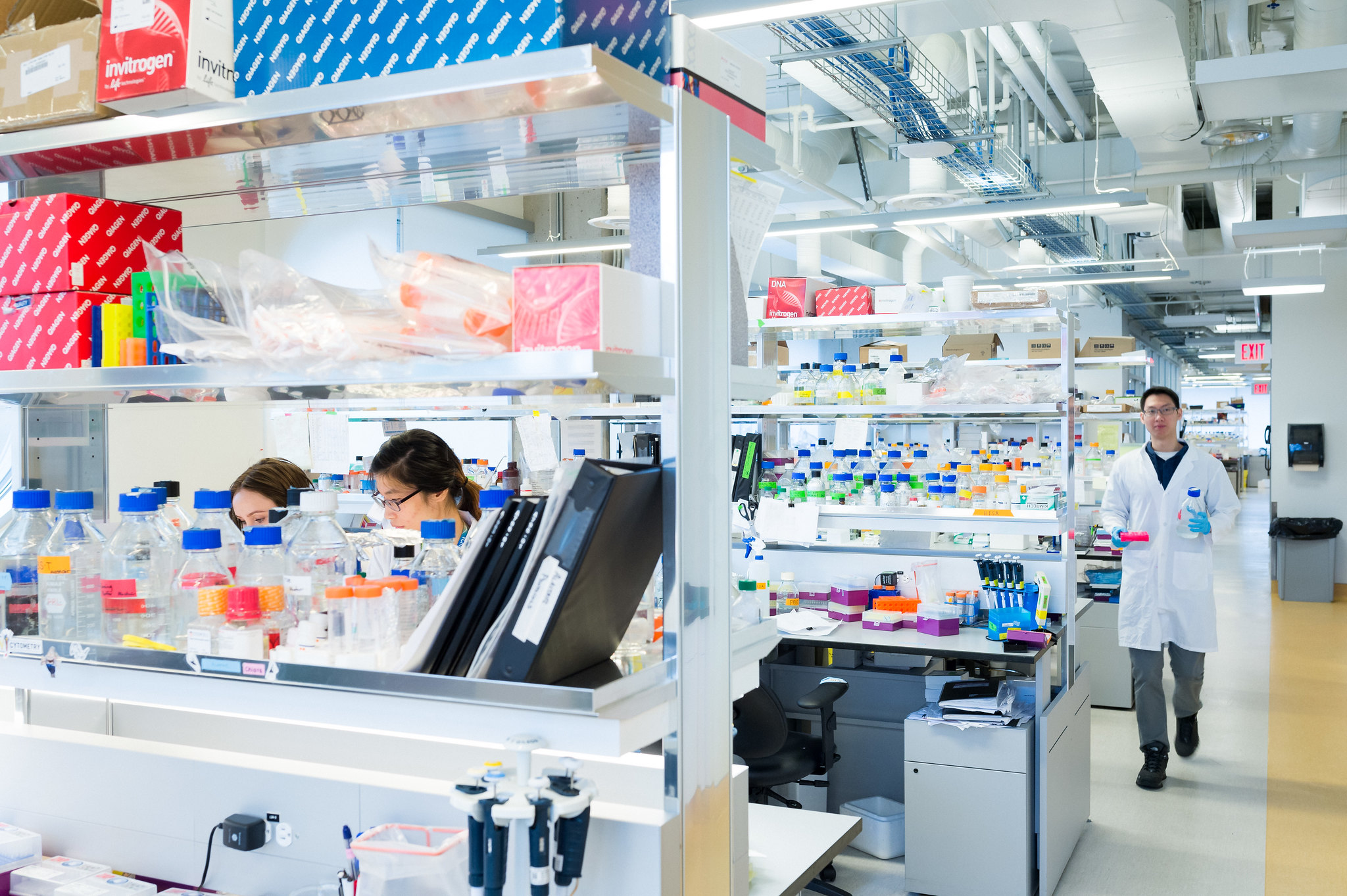Using AI to develop drug cocktails for COVID-19
June 25, 2020

June 25, 2020

UBC microbiologists and chemists have received $2.5 million in support of research aimed at addressing the health challenges of the COVID-19 pandemic.
François Jean, Bob Hancock and David Perrin are among the 19 researchers at UBC receiving a combined total of $14.3 million in grants in the latest round of federal funding to accelerate the development, testing and implementation of measures to mitigate the rapid spread of COVID-19 and its negative consequences on people, communities, and health systems.
"This new federal investment will enable UBC researchers to further contribute valuable insights into medical and societal responses to COVID-19," said Gail Murphy, vice-president, research and innovation at UBC. "These research projects, which range from developing treatments to addressing the impacts of COVID-19 on vulnerable and marginalized populations, could have national and global impacts, and we are grateful for this support."
The UBC-led projects being supported by this funding range from the creation of an integrated rapid-response network for emergency departments across Canada and the development of genetic libraries, to research into the dual health emergencies of overdose and COVID-19 and studies into the long-term effects of COVID-19 on brain health.
An international consortium of researchers led by Artem Cherkasov at the Vancouver Prostate Centre and the Vancouver Coastal Health Research Institute, and Jean, associate professor in UBC Microbiology and Immunology, is receiving $2.1 million from CIHR to use artificial intelligence to search for SARS-CoV-2 inhibitors among known drugs. They will work to identify antiviral drugs that can work synergistically with antiviral therapy remdesivir to boost its effectiveness and block SARS-CoV-2, similar to the drug cocktails used in treating HIV and hepatitis C infections. This research will be performed at UBC FINDER, one of the largest university-based containment level 3 facilities in the world, founded by Jean.
Hancock, also with UBC Microbiology and Immunology, is receiving $422,084 from CIHR to lead a research project that will use genomic methods to identify which patients with COVID-19 are at higher risk of developing life-threatening sepsis. Teams in Vancouver and Quebec will use next-generation RNA sequencing technology to examine the complete gene expression profiles of severely ill patients, with the goal of enabling early diagnosis of patients more likely to develop severe sepsis, and identifying potential treatment strategies.
Perrin, with UBC Chemistry, is receiving $167,056 from CIHR for his research into the development of non-toxic, drug-like products that can intercept the COVID virus and prevent it from entering cells. This product could potentially also be used as a preventive coating on medical devices, as a topical skin cream to reduce spread, and, potentially, orally.
The Government of Canada is providing the funding for this research through CIHR and the International Development Research Centre (IDRC), in partnership with Alberta Innovates (AI), Michael Smith Foundation for Health Research (MSFHR), Research Manitoba (RM), Research Nova Scotia (RNS), Saskatchewan Health Research Foundation (SHRF), and the New Brunswick Health Research Foundation (NBHRF).
We honour xwməθkwəy̓ əm (Musqueam) on whose ancestral, unceded territory UBC Vancouver is situated. UBC Science is committed to building meaningful relationships with Indigenous peoples so we can advance Reconciliation and ensure traditional ways of knowing enrich our teaching and research.
Learn more: Musqueam First Nation